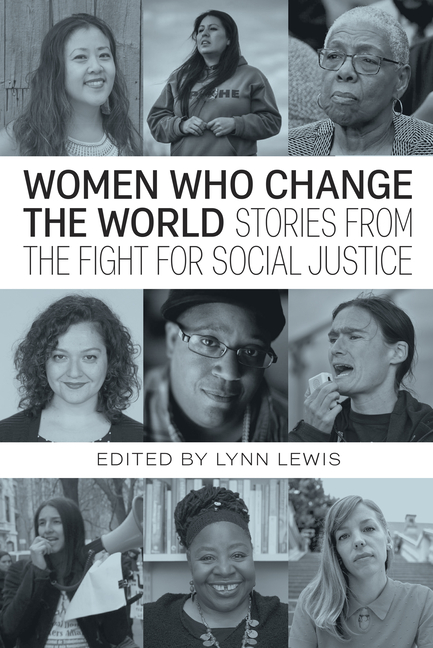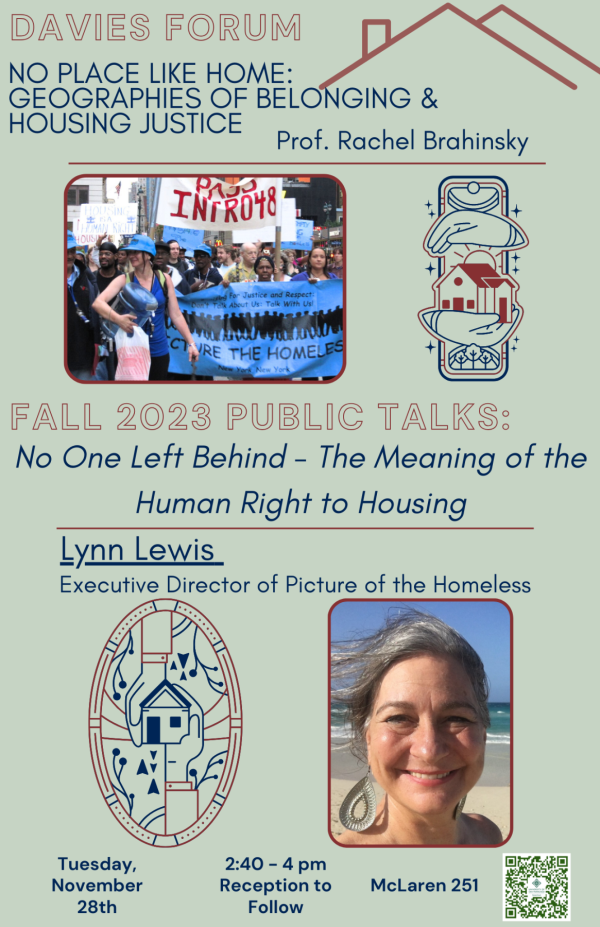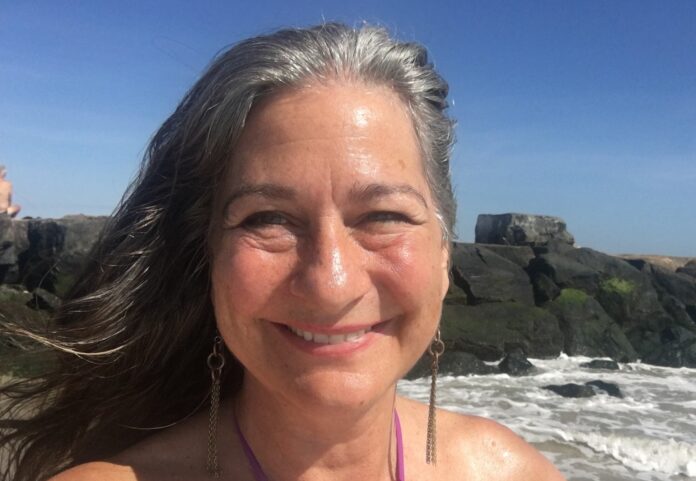As one of the most respected East Coast organizers and activists, Lynn Lewis has turned to oral history to document the voices of everyday people making change. Her debut collection, Women Who Change the World: Stories from the Fight for Social Justice (City Lights/Open Media), gathers the life stories of nine women—Malkia Devich-Cyril, Priscilla Gonzalez, Terese Howard, Hilary Moore, Vanessa Nosie, Roz Pelles, Loretta Ross, Yomara Velez, and Betty Yu—at the forefront of creating a better world. The book offers a deep, personal dive into what it means to dedicate your life to the struggle.
Before her appearance at the Howard Zinn Book Fair on Sunday, December 3 following an appearance at San Francisco State at the Davies Forum on Tuesday, November 28, we spoke with Lewis about her oral history practice and how it serves as an important tool in fighting disinformation, preserving organizing history, and broadening activist horizons.
48 HILLS Tell us about your path to become an oral historian.
LYNN LEWIS I have been blessed to have witnessed brilliance from everyday folks. Throughout my life, there have been so many conversations, meetings, actions and moments that I have wished were recorded, because they run counter to narratives in mainstream and even progressive media about who has knowledge and insight and is capable of interpreting the conditions of their own lives. In Venezuela I learned a term, libros vivientes, meaning every person is a living book. I love that idea.
My path to becoming an oral historian has meant learning that the labor of oral history extends beyond listening and recording. It begins with thinking through the oral history projects’ purpose and design, whose perspective matters, how to welcome folks to share their history, their knowledge and their curiosity and their questions, and how and where to make oral histories accessible, in alignment with the project’s purpose and intended benefit.

48 HILLS Were you surprised by anything your interviewees shared with you? Did you notice any common threads in the interviews?
LYNN LEWIS I learned movement histories that I didn’t know from each of the women interviewed. Even though there were nine women interviewed for this book, the breadth of their experience and capacity to place their lives within a historic context is incredibly powerful. I was deeply moved during each interview by their candor, their humor and their insight. There were several common threads, including the importance of mentors and movement relationships.
Another common thread is that organizing is a way of life. Some of the women were born into movement, a legacy inherited from parents and community, while others became involved in movement by attending an action, or a meeting when they sought to solve a problem in their lives, or the lives of a loved one or community member.
Help us save local journalism!
Every tax-deductible donation helps us grow to cover the issues that mean the most to our community. Become a 48 Hills Hero and support the only daily progressive news source in the Bay Area.
There is a dynamism to their work, in terms of their own evolution and how they see themselves in the world. The interviews reveal the ways in which organizing is about building relationships to solve problems and to transform society. Hopefulness is a common thread, and the faith that we can actually bring forth justice.
48 HILLS Some historians fault oral history for crossing the line between fact-finding to history making. How do you respond to them?
LYNN LEWIS All history begins with orality, with someone sharing his/her-story. What is crucial about oral history is that we don’t only find out what happened when, we are able to learn what those events mean to the people impacted by them and in the case of this book, what those events and movements mean to some of the women who helped shape them. Oral history interviews offer historic nuance as first person accounts can only do.
I believe that oral history is a necessary methodological complement to other forms of research. I have worked in organizations and movements where our own internal history and organizing lessons were being lost, literally in front of my eyes. Oral history is a powerful tool to document campaigns, organizational development and social movements from the perspectives of the people who contribute to that work.

48 HILLS How can oral history be useful in an era of disinformation?
LYNN LEWIS Oral history contextualizes and complicates history. If we want to understand our present condition and really work on creating more just futures, we have to understand how we got here. Collectively we have to build movements based on shared values and a shared history of struggle that has always been obscured. This current era of disinformation is leading this country and many places in the world towards polarization and fascism. There has always been disinformation that shapes narratives in the service of power. These times call on us to be open to nuance and context, beyond soundbites, tweets, or rhetoric.
48 HILLS What’s next for you? What are you working on?
LYNN LEWIS I’ve been working on the Picture the Homeless Oral History Project for the past six years. It’s now publicly available and I will continue to create popular education materials from those interviews and the archive in the service of organizing among homeless and poor folks. I would love to shape all of the content in that project into a book! I also hope to work on oral history projects about other social movements, and am excited to be a part of the Housing Justice Oral History Project at the New School.
I would love to participate in collective learning and teaching with organizers and oral historians about how to document and share histories of social movements, and to keep learning. The problems we are facing aren’t new but sometimes it feels like we are starting from scratch, trying to figure out strategies and tactics for change. I believe oral history can be a powerful tool to help us learn from the past to create a better future.
Lynn Lewis appears at the Howard Zinn Book Fair, Sunday, December 3, 2:30-4pm, Room 154 at the Mission Campus of City College of San Francisco, and Monday December 4, 2pm at San Francisco State University, Humanities Room 587.




